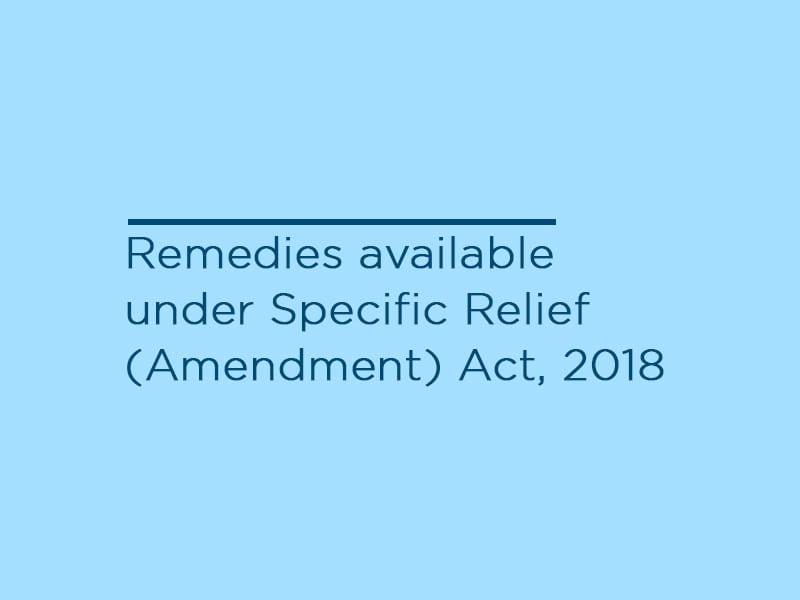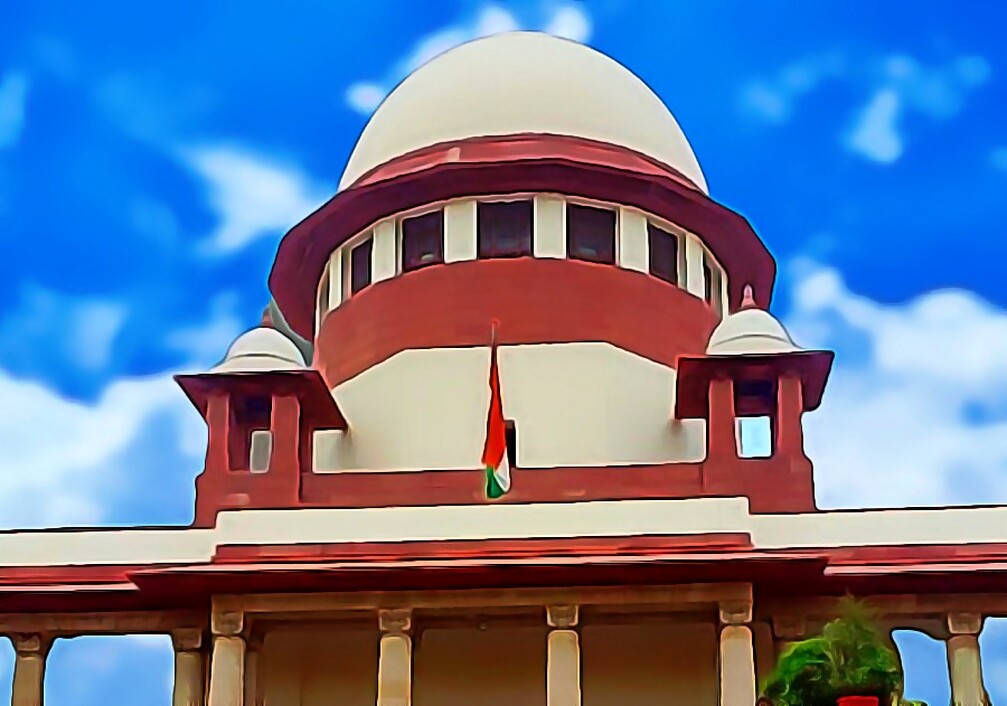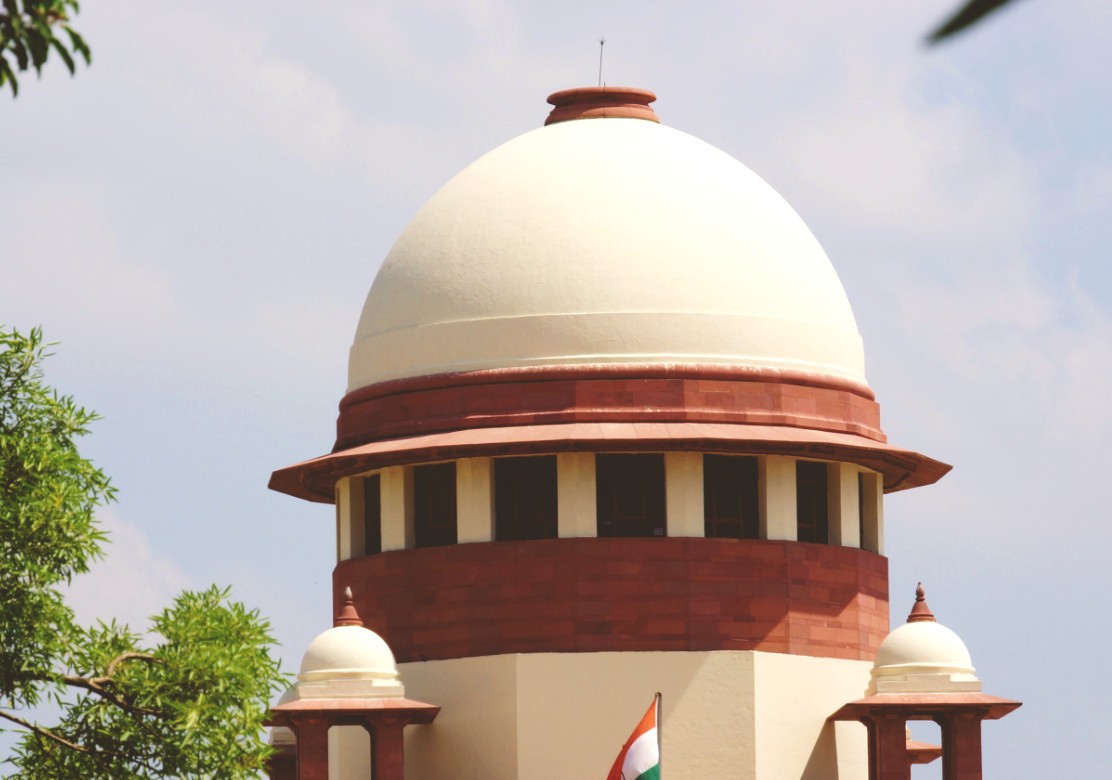Queries: A. What are the remedies available under Specific Relief (Amendment) Act, 2018? B. Whether the Respondent (land owner) can unilaterally terminate the Joint Development Agreement & Agreement of Sale?

Facts: The Respondent (owner of immovable property) entered into a Joint Development Agreement (hereinafter referred to as JDA) and Agreement to sell with the Developer. However, due to non-performance of the JDA and Agreement to sell, Respondent terminated the agreements. As a consequence, the Developer has invoked the arbitration clause of the agreement, challenging the unilateral termination by the Respondent and are seeking specific performance of the JDA & agreement of sale.
Observations:
I. THE SPECIFIC RELIEF (AMENDMENT) ACT, 2018:
Transition from Discretionary Remedy to Statutory Remedy
As per the Erstwhile Act, courts had discretion in granting the remedy of specific relief., i.e., Courts were not bound to grant specific relief merely because it was lawful to do so. However, as per the new Amendment, specific relief has now been made a general rule. Section 101 states that specific performance of a contract shall be enforced by the court subject to the limited grounds of refusal defined in the statute. Specific relief has now been made a statutory remedy.
Substituted Performance of Contract
As per section 202 of the Amendment Act, it is now stated that where the contract is broken due to non-performance of promise by any party, the party who suffers by such breach shall have the option of substituted performance through a third party or by his own agency, and, recover the expenses and other costs actually incurred, spent or suffered by him, from the party committing such breach.
In Mukesh Singh And Ors. vs Saurabh Chaudhary And Another, the Allahabad High court, while delivering the judgment, has made the following observation:
The scheme of the Act as amended by the Amendment Act 2018 (No.18 of 2018) that the wider discretion of courts to grant specific performance and to make specific performance of contract a General Rule than exception subject to certain limited ground has been done away. The discretionary jurisdiction to decree specific performance as provided in the old Section 20 of the Act has been omitted. After amendment, the jurisdiction of the Court is not discretionary to decree specific performance.
The Court in the said case further observed:
Once it has been established that the registered agreement to sell was lawfully executed by the defendants-appellants in favour of the plaintiff-respondents for sale of the disputed property and that the plaintiff-respondents were always ready and willing to perform their part of the contract, there is no escape from decreeing the suit of specific performance filed by the plaintiffs-respondents.
II. DEFICIENCY OF SERVICE:
⇒ Section 2(o) of the Consumer Protection Act, 1986 defines ‘service’ as ‘service of any description which is made available to potential users and includes, but not limited to, the provision of facilities in connection with banking, financing insurance, transport, processing, supply of electrical or other energy, board or lodging or both, housing construction, entertainment, amusement or the purveying of news or other information, but does not include the rendering of any service free of charge or under a contract of personal service.
In Lucknow Development Authority vs M.K. Gupta, the Supreme Court has held that when a person hires the services of a builder, or a contractor, for the construction of a house or a flat, and the same is for a consideration, it is a “service” as defined by Section 2 (o) of the Consumer Protection Act, 1986. The inordinate delay in handing over possession of the flat clearly amounts to deficiency of service.
III. UNFAIR TRADE PRACTICE
⇒ Section 2 (r) of the Consumer Protection Act, 1986 defines ‘unfair trade practices’ in the following words : “‘unfair trade practice’ means a trade practice which, for the purpose of promoting the sale, use or supply of any goods or for the provision of any service, adopts any unfair method or unfair or deceptive practice …”, and includes any of the practices enumerated therein. The provision is illustrative, and not exhaustive.
In Pioneer Urban Land & Infrastructure Ltd. Vs. Govindan Raghavan, the Supreme Court has held that a term of a contract will not be final and binding if it is shown that the flat purchasers had no option but to sign on the dotted line, on a contract framed by the builder. The Court in this case went ahead to observe that the incorporation of such one-sided clauses in an agreement constitutes an unfair trade practice as per Section 2 (r) of the Consumer Protection Act, 1986 since it adopts unfair methods or practices for the purpose of selling the flats by the Builder. In this case, the Court held that the terms of the Apartment Buyer’s Agreement were wholly one-sided and unfair to the Respondent – Flat Purchaser. The Appellant – Builder could not seek to bind the Respondent with such one-sided contractual terms. The Court in this case held that the Respondent – Flat Purchaser has made out a clear case of deficiency of service on the part of the Appellant – Builder. The Respondent – Flat Purchaser was justified in terminating the Apartment Buyer’s Agreement by filing the Consumer Complaint, and cannot be compelled to accept the possession whenever it is offered by the Builder. The Respondent
– Purchaser was legally entitled to seek refund of the money deposited by him along with appropriate compensation.
The Law Commission of India in its 199th Report, addressed the issue of ‘Unfair (Procedural & Substantive) Terms in Contract’. The Law Commission inter-alia recommended that a legislation be enacted to counter such unfair terms in contracts. In the draft legislation provided in the Report, it was stated that :
“A contract or a term thereof is substantively unfair if such contract or the term thereof is in itself harsh, oppressive or unconscionable to one of the parties.”
IV. BREACH OF AGREEMENT/CONTRACT
In M/S. Fortune Infrastructure (now known as M/S. Hicon Infrastructure) & Anr. Vs. Trevor D’lima & Ors., the Supreme Court has made the following observations:
If the seller wants to limit their liability for breach of contract under the aforesaid rule, they have to portray that they have performed their obligation in a prudent manner. It may be noted that the onus is on the seller to show his best efforts and bona fides in discharging the obligation. It may be noted that even in the absence of fraud, mere unwillingness to carry out the duty could constitute bad faith sufficient for the purchaser to claim damages.
The Supreme Court further held that a person cannot be made to wait indefinitely for the possession of the flats allotted to them and they are entitled to seek the refund of the amount paid by them, along with compensation.
Conclusion:
Thus, it can be observed that as per the Specific Relief (Amendment) Act, 2018, specific performance of a contract shall be enforced by the court subject to the limited grounds of refusal defined in the statute. Further, if there is a breach of contract, the aggrieved has the option of substituted performance and has the option to recover the expenses and other costs actually incurred, spent or suffered by him, from the party committing such breach.
It has been clearly held by the Supreme Court in Pioneer Urban Land & Infrastructure Ltd. Vs. Govindan Raghavan that the Flat Purchaser was justified in terminating the Apartment Buyer’s Agreement by filing the Consumer Complaint, and cannot be compelled to accept the possession whenever it is offered by the Builder. In this case, Supreme Court upheld the order passed by the National Commission, wherein National Commission vide Final Judgment and Order dated 23.10.2018 allowed the Consumer Complaint filed by the Respondent – Flat Purchaser, and held that since the last date stipulated for construction had expired about 3 years before the Occupancy Certificate was obtained, the Respondent – Flat Purchaser could not be compelled to take possession at such a belated stage.
In Sai Priya Construction Company V. K. Anantha Kumari Satya Raju there was an agreement between the builder and the owners to develop the land of the owners bearing Plot Nos. 5 and 6, situated Chikoti Gardens, Hyderabad. Later, the owners cancelled the agreement and the builder was informed of the same by way of a notice on 27-7-2002. Aggrieved thereby, the builder invoked the arbitration clause incorporated under the agreement and nominated an arbitrator. The owners also nominated an arbitrator of their choice.
In both the above cited cases, it is observed that the aggrieved parties terminated the agreement unilaterally.
***
Sign up for our weekly newsletter to stay up to date on our product, events featured blog, special offer and all of the exciting things that take place here at Legitquest.




Add a Comment